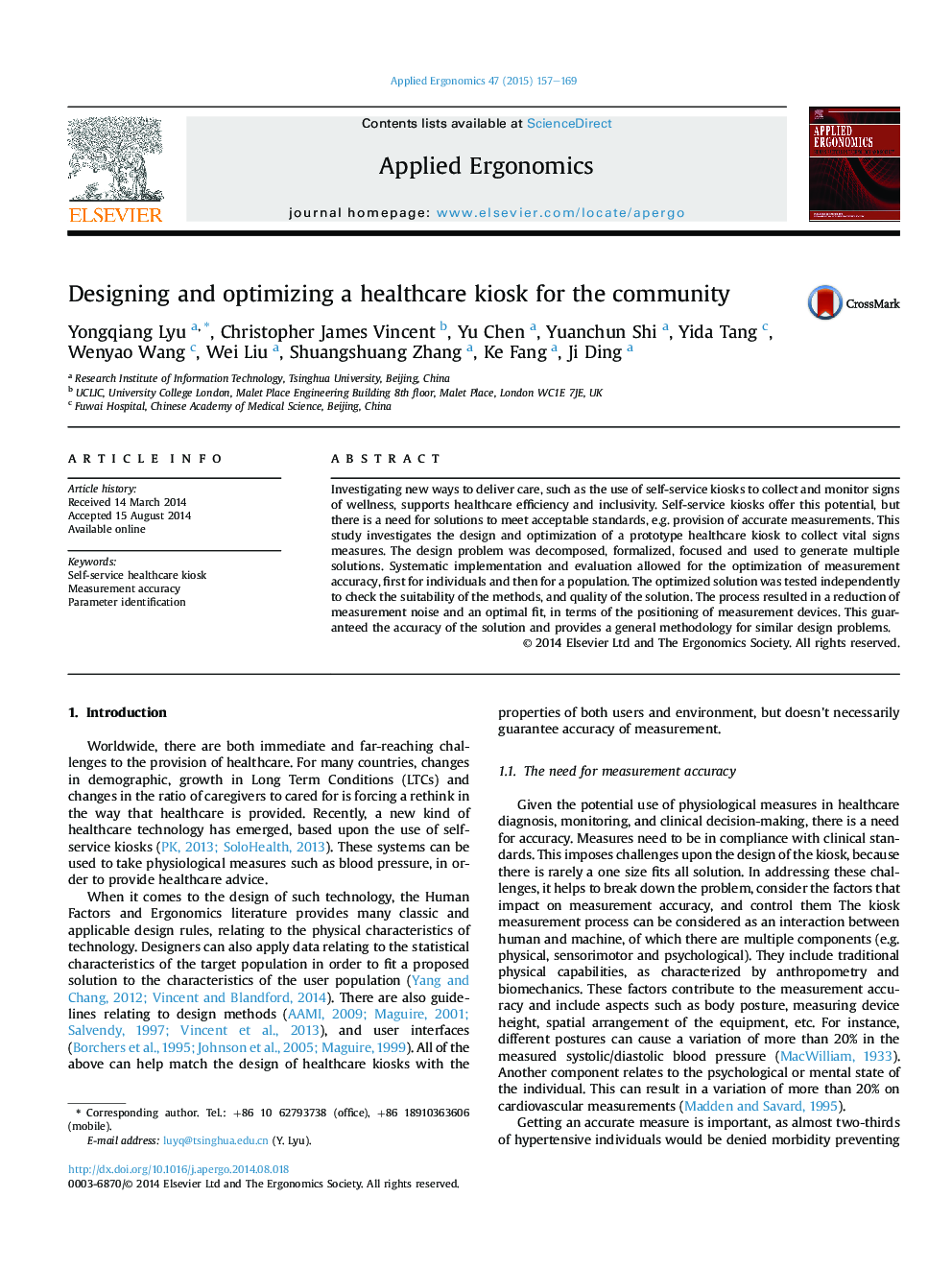| Article ID | Journal | Published Year | Pages | File Type |
|---|---|---|---|---|
| 6947969 | Applied Ergonomics | 2015 | 13 Pages |
Abstract
Investigating new ways to deliver care, such as the use of self-service kiosks to collect and monitor signs of wellness, supports healthcare efficiency and inclusivity. Self-service kiosks offer this potential, but there is a need for solutions to meet acceptable standards, e.g. provision of accurate measurements. This study investigates the design and optimization of a prototype healthcare kiosk to collect vital signs measures. The design problem was decomposed, formalized, focused and used to generate multiple solutions. Systematic implementation and evaluation allowed for the optimization of measurement accuracy, first for individuals and then for a population. The optimized solution was tested independently to check the suitability of the methods, and quality of the solution. The process resulted in a reduction of measurement noise and an optimal fit, in terms of the positioning of measurement devices. This guaranteed the accuracy of the solution and provides a general methodology for similar design problems.
Related Topics
Physical Sciences and Engineering
Computer Science
Human-Computer Interaction
Authors
Yongqiang Lyu, Christopher James Vincent, Yu Chen, Yuanchun Shi, Yida Tang, Wenyao Wang, Wei Liu, Shuangshuang Zhang, Ke Fang, Ji Ding,
